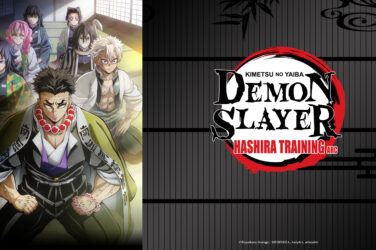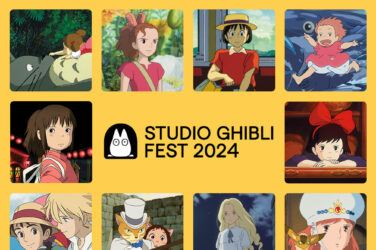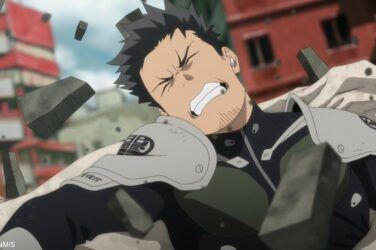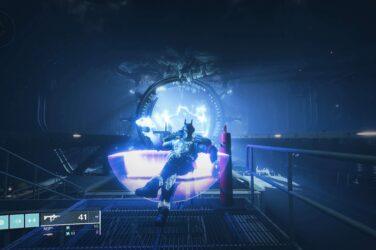Over the last couple of weeks, you may have seen Utopia Falls on your Hulu dashboard. And after watching the entirety of the first season a few weeks ago, I honestly do think the best way to describe it would be, “What if The Hunger Games had an America’s Got Talent – Hip Hop Edition styled competition instead of a deathmatch?” And yes, I too was skeptical about such an outlandish premise but ultimately, I found myself invested in the series. While it was very much Dystopia 101 meets Intro to Hip Hop that adult-me couldn’t fully engage with, I also recognize that a younger version of me would have devoured this series had it been around during my teen years.
By the time the credits rolled on the season finale, “If I Ruled the World,” two thoughts passed through my head:
1) The entire cast seemed to have a blast filming.
2) I really wanted to know more about how this series came into existence.
As such, I was lucky enough to get to sit down with both R.T. Thorne, the creator of the series, and Robyn Alomar who played Aliyah-5, one of the central characters in the ensemble. From jump, their passion and enthusiasm were very much infectious.

The Origins of New Babyl
BNP: So, Robyn and R.T., I just finished Utopia Falls last week and I am very excited to talk to you about the series.
R.T.: Does this mean we can talk spoilers? I guess we can.
BNP: Yeah, I think it’s been long enough.
Robyn: I’ve been so used to giving spoiler alerts. This will be my first time talking about the show with spoilers.
BNP: Oh, this is gonna be fun then. Let’s start with you, R.T.: When did you conceptualize the series and how did it evolve over time?
R.T.: It’s coming up on four years. Initially, I met with the production company, Sonar Entertainment, and they were interesting in doing something different and in the YA space and they knew I had a reputation in the music video world, especially here in Canada. I think they were interested in doing something that was music related. They asked me what I thought would be a cool type of a project for YA, and I just kind of off the cuff said “I’ve never really seen the culture I grew up with, hip-hop culture and whatnot, I’ve never really seen that in the future. I know about the history of hip-hop, and we’re living in the present of it where it dominated pop culture and dominates the trends, but I’ve never seen that in the future. And especially young people of culture and LGBTQ+ and indigenous people, and their culture really in the future.”

And that’s where the conversation started and I can’t say there were like “Yeah!”.
At first, they were like “Okay, that’s interesting.” I don’t think they ever thought of that either, so I went away and kind of developed a quick four/five page concept of the idea in a controlled future society, a very curated future society that has left out certain things to make this “perfect” society that some young people would rediscover hip-hop culture at the beginning and what that kind of injection of a rebellious culture, of a culture that’s based in free speech and speaking on things you see in your environment and life… what that would do to that type of society.
That was the beginning. And then they worked with our development executive over the next two years. Most of the characters you see were in the first pitch and then we started putting stuff together. I come from sort of a musical video/commercial background. I’m a visual storyteller off the bat, and the important thing that I did, especially important for a science fiction series where people need to see the imagery, was put together a visual deck and sizzle reel to explain the concept. And then we went out and pitched it around and Hulu bit. I think they were coming off of Handmaid’s Tale and its Emmy win and were very interested in programming that was challenging that had that dystopian bent to it.
BNP: Cool. So Robyn, how did you get involved with the series?
Robyn: I got the audition just like any audition, through my agents, but I remember the day of being worried that I couldn’t because there was a problem with Uber and that was the only way I was getting around in LA at the time.
I thought it was a really cool script and was different. I’m a major geek in general, so anything that’s sci-fi or fantasy, I get excited for right away. I thought it was dope that all the major characters were people of color and that the two leads were black. It was something I’d never seen either in my auditions.
It was a month later, I hadn’t really heard anything about it and then I got a callback for a Skype session with R.T. and Joe Mallozzi. And I’m naturally really bubbly, but as soon as everyone else was on the phone, they got really serious and I remember that. I was so nervous. I would laugh and stuff like that, and R.T. was completely stone-faced and he was like “Okay. Can we do this next?” So… I wasn’t sure after that. I was like “Oh my god, they thought I was annoying.”
R.T.: Totally not true.
*Laughter*
Robyn: I got the dance audition later that day and then I really started freaking out. I’m not a trained dancer and I didn’t want that to be the one thing to keep me away from this.
So I practiced the routine (it was really simple, too) the whole weekend, practicing and practicing. And then that happened, and it was just “fingers-crossed.” And then three days later, I got the call that I was submitted to producers and they were like “you got it.” And I flipped out. I was jumping and crying and just really happy.
A Talk About Craft
BNP: Let’s pivot off that. During this ten-episode run, you have this large ensemble cast and lots of different story arcs that are anchored by Aliyah discovering the Archive and subsequently all the faults in society. Robyn, how did you prepare to become what is essentially the face of the series?
Robyn: This was my first big project and and I thought “I’m going to go off for my preparation.” What I did was start a customized journal for Aliyah, just stuff that I had a little knowledge of her and then I would make up things about her history and little memories. It wasn’t gonna be a lot of episodes and even though I’d never done something like that before, I needed something to zone me in to who she was.
That was one of the things I did in preparation. And I took *a lot* of dance classes. Before we started filming, I’d go to three a week and then when we did start filming, we were training every week with Tanisha Scott and Amanda Mae which was awesome. That really helped me get into the mindset of Aliyah because when you’re training as a dancer, you get a lot of principle.
BNP: Now, R.T., how did you prepare with the large scope and ensemble cast and all the moving parts of the sci-fi world?
R.T.: I mean… That’s a very interesting question because I just feel I’d been preparing for it all my life. All the jobs I was doing led up to this. I’d been in television a little while as well, so just working with ensemble casts in other shows helped.
Around the time we started developing the show, I got a chance to shoot a season of Find Me in Paris, which was filmed on location. And that was a first year production as well. While I didn’t create that show, I was one of the directors and did thirteen episodes with the cast. So that kind of really gave me a ground up perspective with dealing with an ensemble and people trying to figure out who their characters are as they are shooting.
We did a thing in pre-production that I took over to Utopia and had the cast hang out and do a bunch of activities together.
And in terms of scripts, Joe Mallozzi came on aboard and we were in the writing room together and then afterwards, we’d both be rewriting scripts. He was very collaborative and right off the cuff, he was like “this is your world. this is your thing.” He really helped guide the process in a great way.
Managing the story lines and stuff like that was actually pretty easy. I voiced certain things that I was interested in with the different characters each having their own arc. I thought that was really important. Sometimes in ensemble casts, the lead has the big storyline and everyone else is supporting them. But in this, our main cast each had significant developments, they all start somewhere and end somewhere. I thought that was really important to not only have people see themselves on screen, but also have a true character arc that they can go through.
Once we were in development and this was going to go — I’ve pitched like six series before this — so when this one started to move, it wasn’t something I feel like I prepared. I knew what I had to do to keep it moving and in the direction that I thought it should go. It turned out to be a lot of fun. It turned to be a lot of work, not going to lie y’know. More sleepless nights than I ever had, but it was an amazing experience at the same time.

BNP: So, both of you have experience outside of TV (R.T., with musical vidoes, and Robyn, with theater). Did those experiences help inform decisions when you were working on Utopia Falls?
Robyn: Again, I used everything I had ever been taught. Breathing exercises and anything I could pull out. I specifically remember one thing from film school though, about animals and getting into an animal state or something like that. And we had to embody a certain animal, and I did that in certain scenes. So I really pulled out *everything*
R.T.: *laughter* You were really doing that? You were channeling your inner squirrel?
Robyn: Low key. Low key. This was my first series. I was learning a lot from my friends who had booked a lot. I went to them for support and also the other people in the cast. They were all experienced actors and I got to lean on them as well.
R.T.: For me, a lot of what I drew on was my influences and my past. Like I said, I’ve been making musical videos and visual media is a big thing for me. I’m a fan of movies and TV, but I’m a comic book geek. Before I was even thinking of being a director, I was drawing comic books and quite frankly, wanted to be a comic book artists. I did that for some years before I started directing. Ironically, my comic scripts ended up being my storyboard frames when I did videos.
I’m a sci-fi geek as well. I grew up watching Star Trek: The Next Generation and you can see direct influences there, with the holodeck and the Archive. But again, this idea came from not really seeing a lot of stories that us as heroes. I always imagined doing Deep Space 9, but with Sisko as the lead, but I also wanted to see our culture. All of that stuff informed what the show would be.
I think hip-hop, just like science fiction and comics, is a mythological storytelling. It’s storytelling that has its surface entertainment layer and then often times, social commentary built into. It seemed like a natural fit to me, even if everyone else was “science fiction and hip-hop?”
Warning: Spoilers Inbound
BNP: Alright, so now the question you two have been looking forward to since I mentioned the word “spoilers”: favorite moment of the series.
Robyn: Um… I have a lot. My favorite moment to film, or my favorite moment in general?
BNP: Let’s do both.
Robyn: Okay. One of my favorites was in Episode 8 when I got to do my solo dance. That was so cool the day of. When you’re a kid, you always wanted to feel like a pop star and in that moment, it felt exactly like that. “I’m living out my dream.” So that was an awesome moment to film.
And the other moment was when I saw what was behind the shield because I love sci-fi and conspiracies and all that, so when that scene came they were like, “you have to think of a reaction” because there was nothing there. So I thought to myself, what if aliens were there right now, what would happen and what would I do. That was one of my favorites as well.
R.T.: So, I didn’t shoot everything. I did the first two and the last two. So there were definitely some elements that we shot that our other wonderful directors did a great job with. The riot that Melanie Orr did was a great scene and that’s when the world got flipped upside down. The discovery of a shield was also a great moment.
The scene I probably enjoyed shooting the most was the “My Kin” performance in 10. The energy was great on set and you (Robyn) and Akiel Julien just killed it. It was just dope to see the music represented in a way where it rallied people to change. It’s a very powerful thing that hip hop does, and y’know, it’s this pivotal moment, where it’s being broadcast throughout all the sectors where they are hearing these words about rebellion and that the Tribunal is up to stuff. And at the end, when everyone had their fist up.

But there’s a bunch of scenes though. Sage’s (Devyn Nekoda) fight, actually using capoeira as a martial art during her fight to defend Brooklyn (Humberly Gonzalez). Devyn did such a great job, and did all of her stunts. She rehearsed weeks for that and just killed it. I would say my *favorite* moment was that last little montage at the end of ten, where Aliyah is locked up.
Robyn: Awww.
*Laughter*
R.T.: I just mean, you get locked up, but then you see that there is a resistance forming when the guard shows up. And then we also see Aliyah’s mother come back at the end and all revolutionary. I love.
Back To Our Regularly Scheduled Interview
BNP: Alright, so the Archive in the show is this collection of all of humanity’s history and culture. What’s the one piece of media you would put into the Archive for future generations to see?
Robyn: Oh cool… I’m thinking of a lot of things but I feel like they’re too modern and I want to think of something better.
R.T.: Nah, just put it out there. We got a lot of stuff in the Archive.
Robyn: I mean, if I could put in a film, I’d probably put in… this really recent, but it would be really cool. One of the things I’d put in there is Black Panther, just playing in the background. Yeah, that’s the one thing.
BNP: Great answer. Fantastic Answer.
R.T.: Yeah, haha. Man, the pressure is on now. I mean… I’m a film guy too, and I think I would put Do the Right Thing in there. That’s one of my favorite films. It’s a challenging film, it’s thought provoking, and funny. It’s kinda everything.
BNP: All right, final question. You have six words to describe the series. Go.
*panic ensues*
Robyn: Okay. Okay. Okay… um… oooh. World… R.T., help me out.
R.T.: I’m trying to come up with my own.
Robyn: Help me. Six words… okay. Shielded city. Music competition. Hip-hop. Rebellion. Yup. That’s my six words.
BNP: Cool.
R.T.: Um… wow… lemme see. Okay… Inclusive, cultural, adventurous, mysterious, rebellious, and social commentary? That’s seven words.
BNP: I’ll take it. All of these rules are arbitrary anyways. And thank you so much for taking time to give these insights to our readers.

Want to get Black Nerd Problems updates sent directly to you? Sign up here!
Follow us on Twitter, Facebook and Instagram






Show Comments